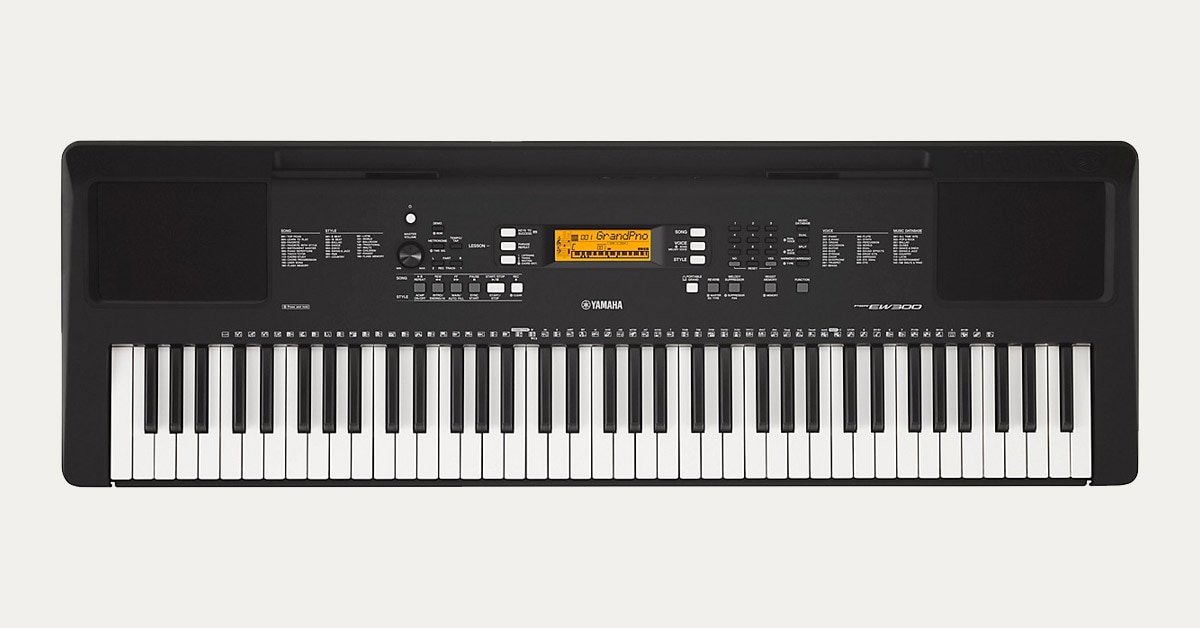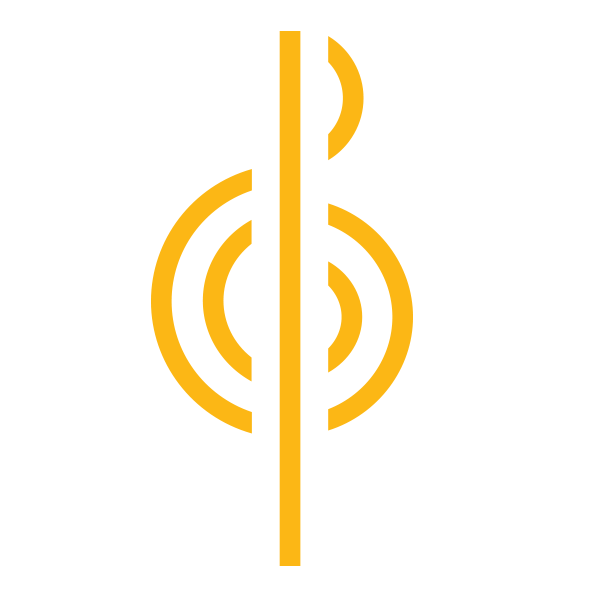Looking to purchase a beginner digitial piano or keyboard? We're here to help you identify the key features to look out for when shopping for the budding piano player in your life.
Table of Contents
Budgeting for Your Piano or Keyboard
Choosing the Right Number of Keys
Ergonomics and Circumstances
For Preschool Pianists
Why Use Weighted Keys?
Still Need Help?
When choosing any instrument for a beginner, there is a balance that must be found: You want an instrument with enough playability and features that the student will not instantly get frustrated with it. But at the same time, you don’t need to spend extra on features that the novice won’t yet use or understand. This holds especially true for keyboards and digital pianos.
A piano or keyboard is a first instrument for many people. This is because a foundation of piano playing can make other instruments, like the guitar, simpler. Understanding chords, scales and melodies can be easier on the piano. This is the case because there is one key for each note, rather than multiple ways to play it, which makes it much easier to visualize intervals. You can think of the piano as a guitar with one string.
Learning to play the piano is a perfect way to develop an ear for intonation as well—pianos need to be tuned, but far less often than other instruments. Electronic keyboards maintain perfect pitch and many can be set to various non-standard tunings at the flick of a switch.
Budgeting for Your Piano or Keyboard
One obstacle to learning to play a traditional acoustic piano is that it requires a large, expensive instrument that is nearly impossible to move. Modern keyboards and digital pianos can offer great sound and the same dynamics of an acoustic piano in an inexpensive and portable package. The days of being confined to the piano teacher’s dusty living room are over; modern keyboards and digital pianos are portable and great for practice and performing. With a wide range of features (and an even wider price range), what is the right choice for your baby would-be Beethoven or Elton?

The Yamaha PSR-EW300 76 Key Portable Keyboard is a great practice keyboard that offers 574 great sounds and can connect to your computer via USB.
Choosing the Right Number of Keys
A standard acoustic piano has 88 keys, and starting a student or other beginning player on a keyboard with 88 keys will make their transition to an acoustic piano much easier. However smaller keyboards can be easier to play and less-confusing—not to mention more portable and convenient—for new and younger players! Commonly, these smaller instruments will have either 76 or 61 keys. A keyboard with 61 keys will still allow a beginning piano student to complete most of the lessons they will initially encounter. Note that most classical and complex music does require a piano with the full 88 keys.
A super deal for the beginner the Williams Legato III 88-Key Digital Piano features 10 fantastic sounds, Bluetooth MIDI and a free downloadable iOS app.
Ergonomics and Circumstances
There are many considerations other than how many keys do you need on your piano. Is your piano student taller or shorter than average? How easy is to adjust the height of the instrument, seat or stand? Musicians should play sitting at a height where the forearm is parallel to the ground.
We offer a complete selection of keyboard stands and racks to match any student and budget.
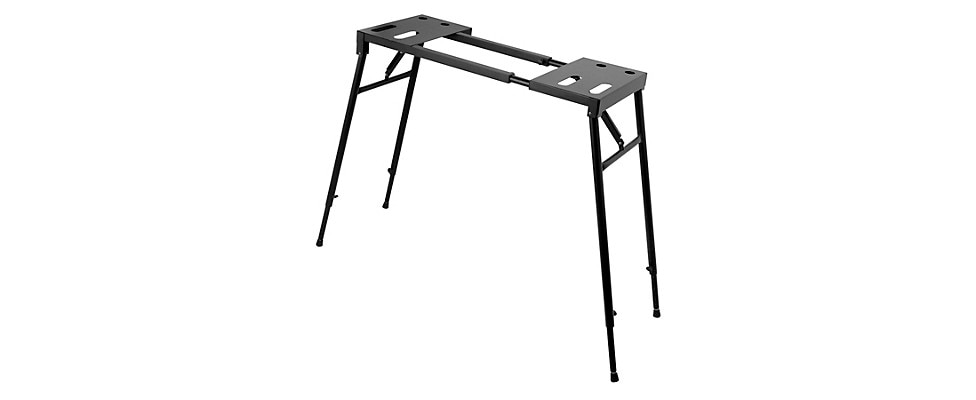
The Platinum Keyboard Stand from On-Stage Stands is sturdy, with adjustable height and width to help you play comfortably.
You’ll find a complete selection of keyboard instrument cases, gig bags, and covers here.
Does the instrument need to travel with your student, and if so, how portable is it? What about the power source? Will you need to play in areas where it may not be easy to plug in? Read the specs to find out if the keyboard can be powered with batteries, an AC adapter, or both. Not all keyboards include an adapter—read descriptions carefully so you order the appropriate extras.

Scaled hammer-action keys give the Casio CDP-350 Digital Piano real acoustic-piano feel.
For Preschool Pianists
A love of music can start very early. If you want to provide your young children with long-lasting enrichment there are a number of fantastic choices to consider from brands like Schoenhut and Casio.
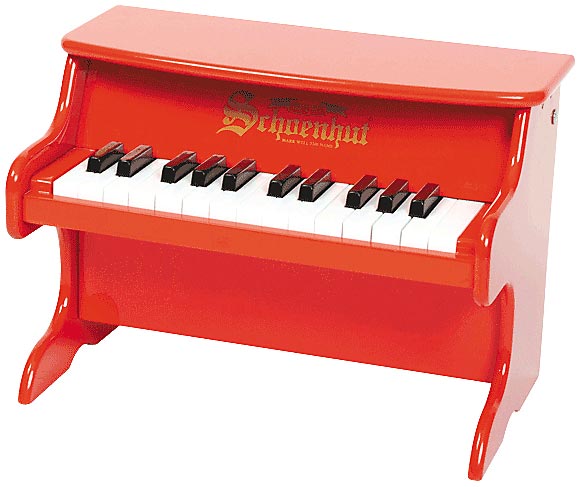
A toddler Tchaikovsky on your hands? For those wanting to start a child on a very early musical journey, check out My First Piano II by Schoenhut.
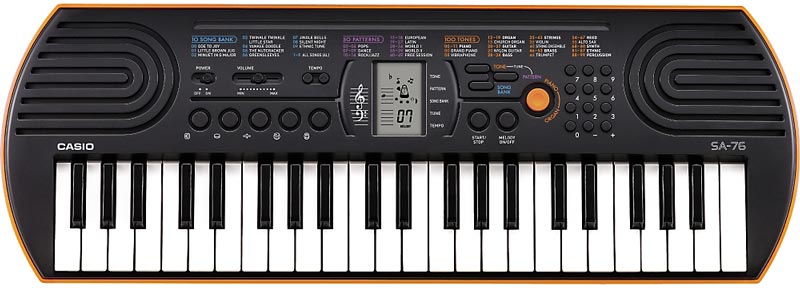
An affordable choice for young children, traveling, or spontaneous backyard sing-alongs, the Casio SA-76 keyboard has 44 mini keys, and a headphone jack for musical exploration that maintains household peace.
Why Use Weighted Keys?
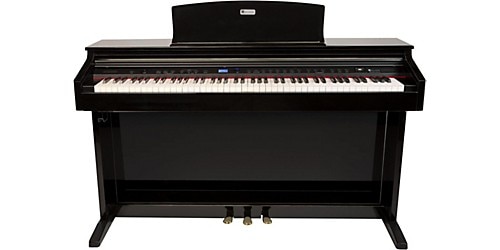
The remarkably affordable Williams Overture 2 Console Digital Piano has full-size hammer-action keys with aftertouch, velocity sensitivity and 147 sounds.
On an acoustic piano, pressing down on a key causes a hammer to strike a string. In order for this mechanism to function, tension must be maintained. Therefore, the keys offer resistance to the musician’s fingers. Weighted keys on electronic keyboards simulate the feel of playing on an acoustic piano. Playing a keyboard with weighted keys will allow a student to build a technique that will easily transfer to an acoustic piano. This is a feature particularly worth considering if the player plans learn the acoustic piano as well.
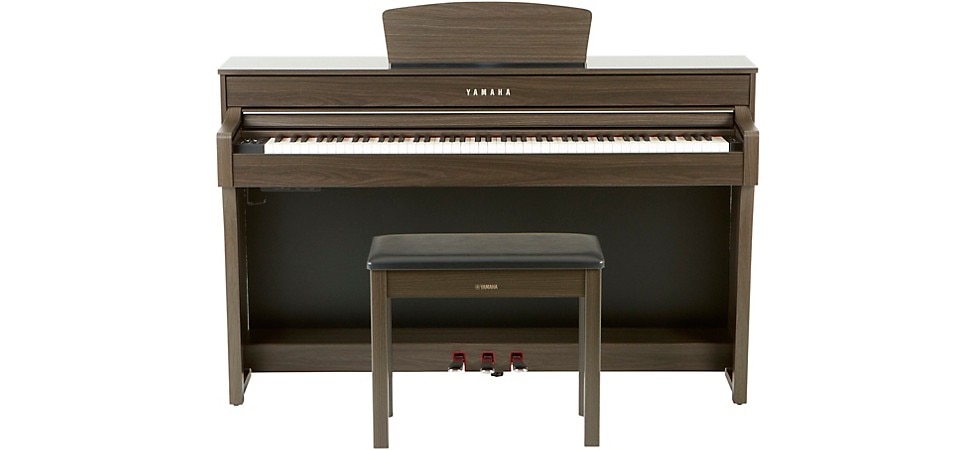
Yamaha is a company with a long legacy of piano design and their CLP635 Clavinova Console Digital Piano makes a great choice for serious students.
We’ve just scratched the surface by highlighting a handful of beginner-friendly keyboards. You can see the entire collection of digital pianos and keyboards at Musician’s Friend.
Still Need Help?
If you’ve read through this guide but still need some advice in choosing the best beginner-level keyboard or digital piano, call one of our friendly and knowledgeable Gear Heads. They’ll help you find the perfect instrument for your needs.
To learn more, read our complete Digital Pianos and Keyboards Buying Guide.





































































































































